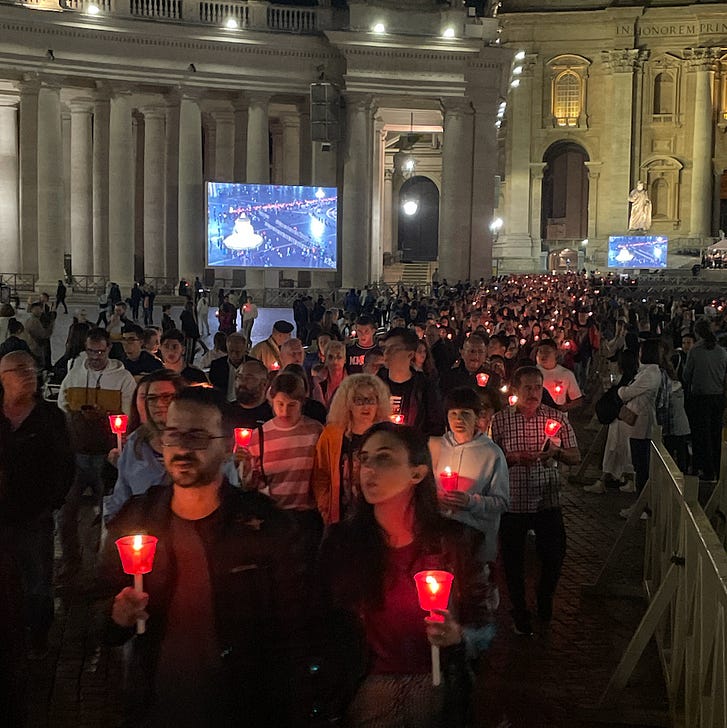'Make the rosary your lifeline' - Why pilgrims came to the Vatican's synod rosary procession
Each Saturday in October, the Vatican is holding candlelight rosary processions. Here's why some pilgrims decided to come.
When the bells at St. Peter’s Basilica chimed nine o’clock on Saturday evening, hundreds of Catholics joined a candlelight rosary procession, praying the rosary in several languages as a steam of candles formed a lighted ribbon around the edges St. Peter’s Square.

The Oct. 21 procession was the third to be held this month, as the Vatican hosts more than …
